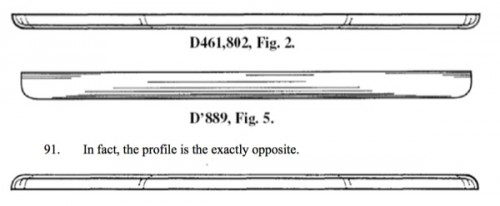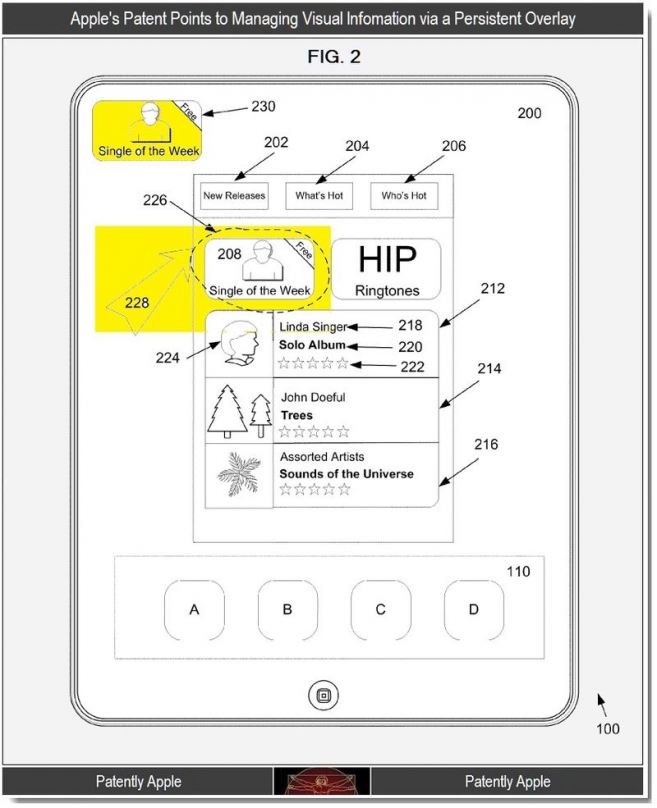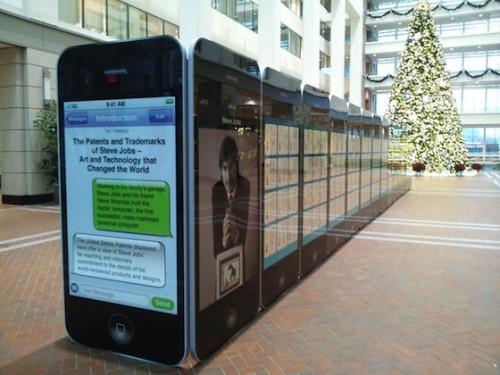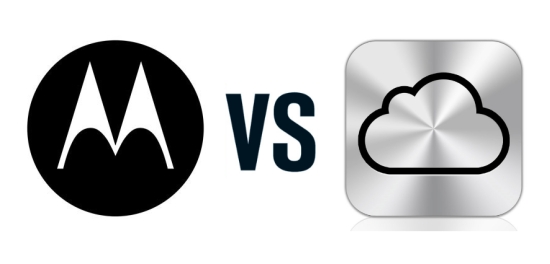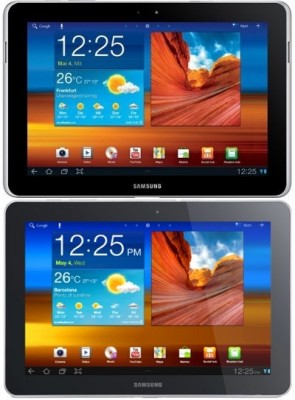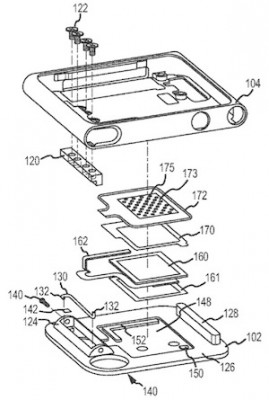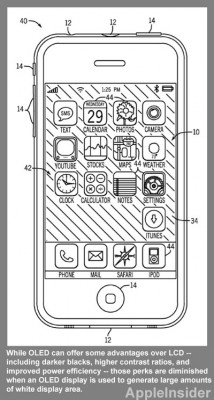News tagged ‘патент’
French court denies Samsung's bid to ban iPhone 4S
According to Reuters, on Tuesday the first-instance court for all French patent litigation ruled against Samsung's request for a preliminary injunction against the iPhone 4S because the court found that Samsung's arguments against the iPhone 4S, so-called FRAND patents, were exhausted. That means that the South Korean company's use of 3G-essential patents against Apple will see worldwide failure.
"The court furthermore held that Samsung's request for an injunction was "disproportionate" and stated that this fact was apparent, without citing particular reasons for this finding," Reuters says. "Some of what the French ruling says indicates that Samsung's use of 3G-essential patents is going to fail everywhere at least as far as the iPhone 4S is concerned."
The French judge who rejected to issue the ban on Apple’s iPhone 4S made clear that Samsung was mishandling its FRAND obligations, noting that a holder of standards-essential patents is not allowed to capitalize on its "necessarily dominant position." "The French ruling makes it clear that there's every indication that Samsung's patent rights are exhausted and Apple is, therefore, effectively licensed," Reuters writes.
Now Apple and Samsung's global disputes over patent infringements have seen more than 30 filings in at least 12 courts in 9 countries that span over 4 continents. And it seems that the battle is far from the end, because patent cases are complex, and courts prefer not to make such decisions on the fast track.
Apple Admits to Court that Samsung Will Draw More Customers from Android than iOS
Early today, we have reported that the U.S. judge declined to issue a preliminary injunction barring Samsung from selling several of its Galaxy smartphone and tablet devices in the United States. We have also mentioned the court order that had been redacted and which revealed that Apple had licensed one specific iOS interface patent to both Nokia and IBM. Now Reuters reports how this court order came to light.
In her 65-page ruling denying Apple's request for a preliminary injunction against Samsung, Koh attempted to redact nearly two dozen sentences or short fragments. But because of a formatting characteristic in the prior electronic version, the redacted material can be viewed by copying text from the PDF and pasting it into another document.
In the court order Koh cites as part of her rationale Apple's admission that Samsung is more likely to take market share from other Android manufacturers than it is from Apple.
Apple Fails to Win U.S. Injunction Against Samsung
Late last week, a U.S. judge Lucy Koh declined to award a preliminary injunction over Galaxy line of smartphones and tablets in the United States. The Judge admitted that Samsung infringed some of Apple's patents, but she declined to issue a ban, because of a lack of evidences.
In her ruling, Koh wrote that for some of the smartphones, "Apple has established a likelihood of success on the merits at trial."
Koh added that Apple would likely prove Samsung infringed one of its tablet patents. However, Apple had not shown that it was likely to overcome Samsung's challenges to the patent's validity, Koh wrote.
Apple must demonstrate both infringement and validity to succeed in its lawsuit.
Interestingly, Apple has licensed to third parties one key iOS patent covering the "scrollback" feature displaying the linen texture when elastically scrolling beyond the end of a document or webpage. Licenses for the patent were obtained by Nokia and IBM, and Apple offered a license to Samsung.
Apple asserted this patent against Samsung as part of its failed attempt to get an injunction against Galaxy devices, and the court order denying the injunction includes general discussion of how past licensing behavior affects the decision of whether or not to grant an injunction. The discussion is nestled among two redacted statements shown to The Verge that confirm the '381 patent was licensed to IBM and Nokia, and that Apple offered a license to Samsung in November of 2010 as part of settlement negotiations.
The fact that Apple has been willing to gain profit from a license offered to other companies undermines its argument that it is being irreparably harmed by Samsung's alleged infringement.
Apple offered alternative designs for Galaxy Tab
Comparison of iPad and Galaxy Tab profiles
The Verge reports that Apple offered an alterative design for Samsung’s Galaxy Tab 10.1 in its July court case seeking a sales ban of the Galaxy Tab 10.1. Apple gave Samsung a list of tweaks that would allow the company to differentiate the two tablets (iPad and Galaxy Tab) and start selling Samsung’s Galaxy Tab not violating Apple’s patents.
The Korean electronics company argued that the patents Apple is using against the Galaxy Tab were based on functionality, and are thus required by all smartphones and tablet computers as part of a basic utilitarian design that is why Samsung had to use the design elements in question. But Apple believes that Samsung could use other options and that the Korean company purposely violated standing patents. To prove its point, Apple generated a list of possible alternatives that included:
- A front surface that is not black.
- A shape that is not rectangular.
- No rounded corners.
- A front surface that is not flat.
- Varying Bezel size.
- A device that is not thin.
- A cluttered appearance.
In response, Samsung slightly changes design of its tablet and rebranded it the Galaxy Tab 10.1. However, Apple did not find these changes sufficient to warrant the lifting of the injunction.
Samsung attorney says Australian judge wrong in banning its iPad-like tablet

Samsung's attorney Neil Young claims that Australian judge Annabelle Bennett was wrong in granting Apple a temporary injunction against the Galaxy Tab. He stated at an appeal hearing that she made a series of errors and did not understand key elements of the case. The judge issued the ban on the basis of just two of the patents, but Apple’s claims are based on 13 company’s patent infringements. So the judge decided that they were enough to warrant a temporary sales ban until the full case will be solved. However, Samsung may lose their customers during the holiday sales season at least in Australia.
As far as we know, Apple is also suing Samsung in California and in some other countries. A separate injunction on sales was won by Apple in Germany. Rather curious incident occurred in the US court. A judge, who held Samsung’s Galaxy Tab and Apple's iPad in the air, asked Samsung's attorneys to identify which one is made by Samsung. Surprisingly, the attorney preferred to evade a question.
Of course, Apple's attorney Stephen Burley does not agree with Samsung's attorney. He believes that Bennett reviewed the infringement case in a detailed fashion. Moreover, he claims that Apple had good chances to win infringement.
Australian Appeals Court Reviewing Galaxy Tab Sales Ban
Bloomberg reports that Australian appeals court is hearing testimony related to the injunction issued to prevent Samsung from selling its Galaxy Tab 10.1 in Australia. As you remember, the injunction was result of complaints from Apple of design infringement. Judges in the appeals case are skeptical of the fairness of the injunction.
“The result looks terribly fair to Apple and not terribly fair to Samsung,” Federal Court Justice Lindsay Foster said today at a hearing in Sydney on Samsung’s appeal for the ban to be overturned.
The injunction was issued by Federal Court Justice Annabelle Bennett on October 13. According to the injunction, Samsung’s Galaxy Tab 10.1 was banned from selling in Australia until Samsung and Apple resolve the patent dispute. Neil Young, Samsung’s lawyer, said that the Justice did not take into account the “dire consequences” of the ban on Samsung. Judges may allow Samsung to sell the device during two-three months before the full trial can take place in March, believing that it won’t severely harm Apple.
Apple New Patent Application Describes Persistent Overlay UI For iOS
The US Patent & Trademark Office published () an Apple patent application describing a new way of interacting with content on iOS devices. The concept is called “Persistent Overlay” and it aims to provide users with quick access to songs, files, photos and other data through an always persistent, accessible UI.
Steve Jobs Exhibit on Display at U.S. Patent Office Museum
Last week the U.S. Patent and Trademark Office opened an exhibition devoted to Steve Jobs. The exhibition honoring Apple’s co-founder includes 30 giant iPhone-like display panels that demonstrate the front pages from over 300 patents that bear Jobs' name as inventor or co-inventor.
“This exhibit commemorates the far-reaching impact of Steve Jobs’ entrepreneurship and innovation on our daily lives,” said Under Secretary of Commerce for Intellectual Property and Director of the USPTO David Kappos. “His patents and trademarks provide a striking example of the importance intellectual property plays in the global marketplace.”
Motorola Is Likely To Win German Injunction Against iCloud In February
According to FOSS Patent’s , a pending legal case in Germany could have a profound effect on Apple with a possible injunction barring the iCloud service in this country over violation of Motorola Mobility patent.
Samsung modifies, rebrands and relaunches Galaxy Tab 10.1 in Germany
New Galaxy Tab 10.1N (top) vs. Galaxy Tab 10.1 (bottom)
Samsung tries to bypass patent infringement from Apple, modifying the design of its Galaxy Tab 10.1 touchscreen tablet in order to re-launch it in Germany. Moreover, Samsung decided to rename the device. The new product is known as the Galaxy Tab 10.1N. The most obvious difference from the front of the device is that the metal frame around the edges of the device now wraps around slightly toward the front along two of the edges. We are not sure that such device will definitely steer clear of infringement. Anyway, it’s up for the Court to decide.
"But without a doubt, Samsung has upped the ante fro Apple and its lawyers in case they wish to request a new injunction or allege that this constitutes an infringement of the existing one."
Germany seems to be a really important battleground in the fight between Samsung and Apple. Last week, Samsung filed a new complaint against Apple in the country. And it’s obvious that the company decided to redesign its device because of permanent ban from selling the Galaxy Tab 10.1 in Germany.
 Leave a comment, read comments [2]
Leave a comment, read comments [2]
Samsung seeking injunction against Apple's 3G products in Germany
Samsung has made a next step in its legal battle with Apple, having initiated new efforts to ban Apple’s 3G products in Germany. Now Samsung and Apple are arguing over what devices might be covered under the injunction Samsung seeks, which would include a prohibition of sales of iPhones and iPads with 3G features. Apple is now doing its best to protect the iPhone 4S from consequences of the injunction that might be granted. This time Samsung plans to use the same methods and patents that Motorola used recently. The German court granted Motorola Mobility an injunction against Apple covering its German sales.
Now Samsung raises questions that include whether Apple is infringing patents that were licensed by the component manufacturers.
At question is "patent exhaustion," whether Samsung can sue Apple for infringement in using Intel's version of the Infineon chips sold since January 2011, or whether Samsung's rights to sue over patents are "exhausted" after being licensed to a third party building the components.
The second issue in the case is standard-essential patents that Samsung uses. As far as we know, Samsung sued before trying to reach a licensing agreement with Apple. Apple noted that Samsung has never claimed infringement over any of its standards-essential patents "until it decided to retaliate for Apple's assertions of non-standards-related patents."
Apple Researching Integrated Speaker for iPod Nano and Shuffle
Patently Apple posted a new Apple’s patent application that describes integration of a speaker into the clip of the iPod nano or iPod shuffle and how a small domed or dimpled cover over the speaker could be designed to produce specific acoustic effects.
In some embodiments, the cavity size may be shaped to create a particular frequency response or to otherwise influence the sound produced by the acoustical element. In some embodiments, the interior surface of the cavity may be modified to increase the size of the cavity, to control the frequency response of the cavity, modify the amount of air displaceable by movement of the diaphragm of the acoustical element, and/or to direct sound waves within the cavity and/or out of the cavity. The shape of the surface may be configured to resonate at a certain desired frequency or frequency range that is desired based on its shape. For example, one or more indentations in the surface may be provided to increase the size of the cavity and/or control the frequency response of the cavity. Generally, the larger the size of the cavity, the lower the frequency that may be resonant within the cavity. In some embodiments, holes may be provided in the surface to adjust the frequency response.
Australian retailer ignores injunction, sells Galaxy Tab
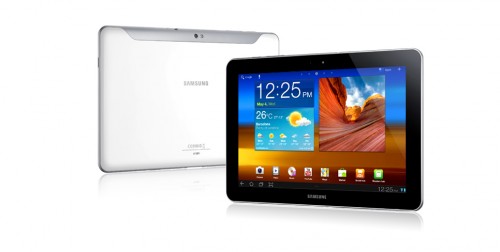
The Sydney Morning Herald reports that despite the injunction prohibiting the sale of Samsung’s Galaxy Tab tablet in Australia, several Australian retailers have ignored Apple's threats and continue to profit from demand for the barred Samsung tablet.
At least one, dMavo, said it had created a separate entity in Europe to place it outside the jurisdiction of Australian courts, with the tablets delivered to customers from Asia.
"We have a new entity established and a separate server - just to deal with the tablet orders - that is undergoing testing as of last Saturday," dMavo managing director Wojtek Czarnocki said.
"Was Apple just bluffing or do they really want to play the cat and mouse game? We're up for it."
Melbourne law firm Watermark's senior associate and patent specialist Mark Summerfield suggests, however, it would be relatively simple to extend Apple's injunction to individual online resellers because it already applies to device maker Samsung. The only thing Apple will have to do is to apply to the Australian Federal Court for further injunctions. But it would be difficult for Apple, because the company is based overseas.
Apple wants to improve OLED technology for potential use in future iPhones
Apple demonstrates interest in improving OLED technology for future iPhone and iPad displays that will provide better battery life for such devices. Earlier this week AppleInsider revealed a new patent application filled by Apple. The title of the patent is "Power Efficient Organic Light Emitting Diode Display" and describes different ways that could improve battery life, for example, displaying the color white.
OLED displays consume less power than traditional displays. This is possible because OLED technology is light emissive rather than light transmissive. But OLED displays, despite all their advantages, are less efficient that it is used for displaying a screen that is largely the color white, because an OLED panel has to utilize a range of color channels for every pixel on the display. Doing this can be power intensive and make the device inefficient.
For example, certain applications, such as word processing, spreadsheet design and use, database design and use, e-mail, and other business or productivity applications, typically utilize dark or black alphanumeric characters on a white background, such as to simulate writing or printing on a sheet of paper. As a result, these applications may cause the display of large expanses of white background with relatively little area devoted to the non-white alphanumeric characters. Such applications, therefore, may make the use of OLED displays unsuitable or undesirably power intensive for battery powered and/or portable electronic devices, such as handheld devices.
European Commission Opens Investigation into Samsung's Patent Threats Against Apple

According to legal documents filed by Apple, the European Commission is investigating Samsung's patent litigation to determine if its use of 3G-related patents violates competition laws. Apple has argued that those patents are essential to basic device operation and must therefore be licensed under FRAND (fair, reasonable and non-discriminatory) terms.
Samsung has launched an aggressive, worldwide campaign to enjoin Apple from allegedly practicing Samsung's patents. Samsung has sued Apple for infringement and injunctions in no fewer than eight countries outside the United States. Indeed, Samsung's litigation campaign and other conduct related to its Declared-Essential Patents is so egregious that the European Commission recently has opened an investigation to determine whether Samsung's behavior violates EU competition laws.
Moreover, the European Commission issued a statement related to the investigation, noting that it asked both Apple and Samsung to provide it with information on patents.
The Commission has indeed sent requests for information to Apple and Samsung concerning the enforcement of standards-essential patents in the mobile telephony sector. Such requests for information are standard procedure in antitrust investigations to allow the Commission to establish the relevant facts in a case.


